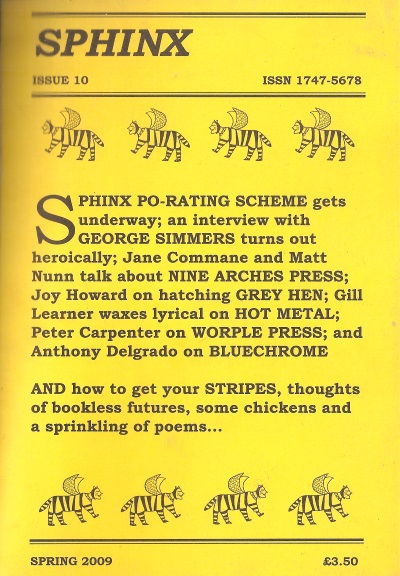

| The first issue of Snakeskin appeared in December 1995. With the current issue, therefore, we celebrate our twentieth anniversary. I thought of marking it by writing something about the origins of the zine, but then remembered that I had already done this, with some help from Helena Nelson, when she interviewed me for her (excellent and fondly-remembered) magazine Sphinx, back in 2009. It was the last of a series of interviews with editors - and the only one that Helena decided would be best conducted in rhyming couplets. It struck me that many Snakeskin readers would never have seen the Sphinx interview - so here it is: |


